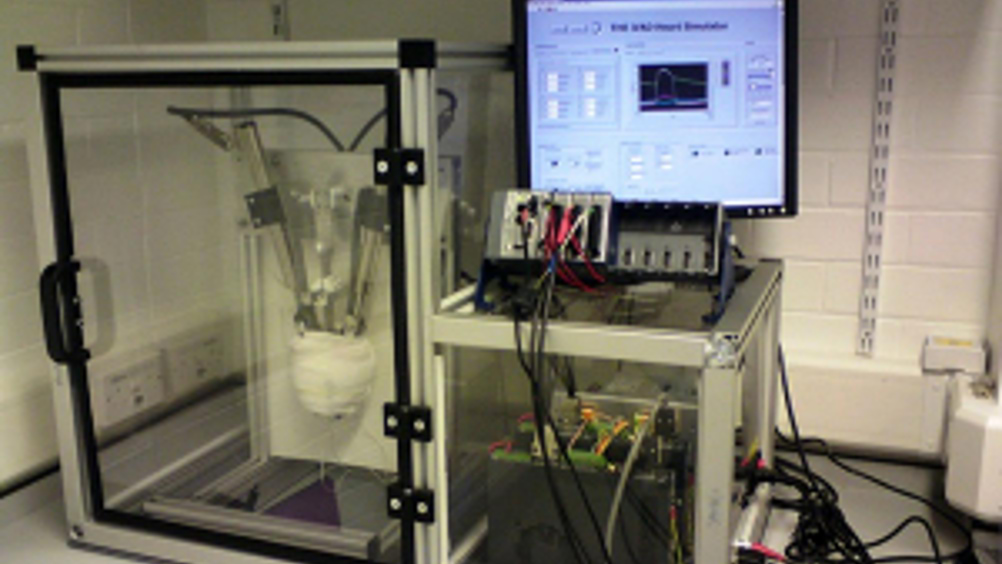UK design teams pick up six awards at NI Week
1 min read
UK based researchers and industrialists scooped the annual National Instruments Graphical System Design Achievement Awards this year, winning a total of six awards out of 16. As well as being named the overall winner for 2012, a team led by Dr David Keeling of the University of Leeds also won in the life sciences and humanitarian categories.

Dr Keeling's team used a CompactRIO system to build a hardware in the loop tester that incorporates a mechanical heart and a computer simulation of blood flow to replicate the behaviour of the natural organ. The model is being used to test an 'artificial muscle wrap' that helps a failing heart to beat by squeezing it in concert with the body's own muscle.
"We wanted the heart simulator to be reconfigurable so it could replicate physically and haemodynamically different patient groups, illnesses and animal models. This adaptability could reduce the need for animal testing because the heart simulator could be used for prolonged trials," the researchers explained.
A second team from the University of Leeds won the student award for the Kinesthesia toolkit – an application programming interface developed to connect LabView to Microsoft's Kinect system. Conceived for medical rehabilitation and surgical assistance, the toolkit makes it possible for LabView to access data from the Kinect camera, including the tracking information that it produces.
In the energy category, West Sussex based Diverse Energy won for its PowerCube – an ammonia fueled generator designed to make it easier for mobile network operators to deploy basestations in developing countries. The containerised generator uses a CompactRIO controller to manage and monitor the process of cracking ammonia into water and nitrogen.
A finalist in the transportation category, Protean Electric won the green engineering award for its use of dyanometer based testing in the development of the company's in wheel electric motor for road vehicles.
"Testing that used to require up to three weeks can now be completed in just 12 hours of completely unmanned automated testing – this has literally saved us months of engineers' time," said Mark McDonnell, product validation manager at Protean.
http://www.diverse-energy.com
http://www.leeds.ac.uk
http://www.ni.com/gsdawards/explore_2012.htm
http://www.ni.com/uk
http://www.proteanelectric.com
http://www.leeds.ac.uk
http://www.ni.com/gsdawards/explore_2012.htm
http://www.ni.com/uk
http://www.proteanelectric.com












